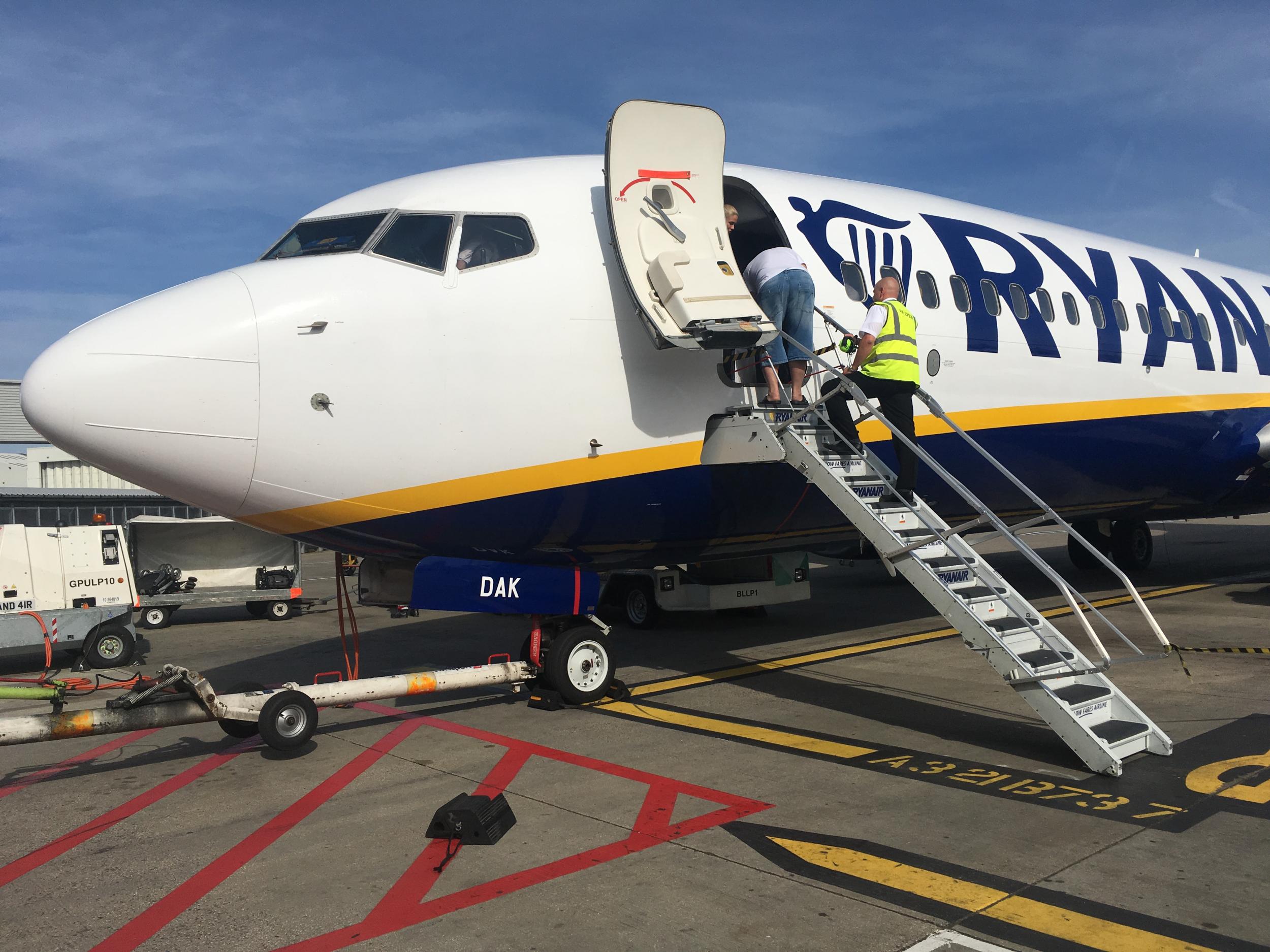Ryanair boss warns French air traffic control strikes will 'disrupt thousands of passengers' holidays'
Michael O'Leary warns millions of passengers could be hit by cancellations in Europe this summer

Your support helps us to tell the story
From reproductive rights to climate change to Big Tech, The Independent is on the ground when the story is developing. Whether it's investigating the financials of Elon Musk's pro-Trump PAC or producing our latest documentary, 'The A Word', which shines a light on the American women fighting for reproductive rights, we know how important it is to parse out the facts from the messaging.
At such a critical moment in US history, we need reporters on the ground. Your donation allows us to keep sending journalists to speak to both sides of the story.
The Independent is trusted by Americans across the entire political spectrum. And unlike many other quality news outlets, we choose not to lock Americans out of our reporting and analysis with paywalls. We believe quality journalism should be available to everyone, paid for by those who can afford it.
Your support makes all the difference.As airlines prepare for another round of strikes by French air-traffic controllers, two of Europe’s leading airline bosses have demanded action to reduce the damage caused by air traffic control (ATC) problems.
Air traffic controllers at the Marseille Area Control Centre (ACC) will strike again this weekend in a dispute over staffing and rostering.
Eurocontrol in Brussels said: “This local strike will induce significantly decrease to the ATC capacity of Marseille ACC area. Flights crossing this area will suffer delays.”
The centre covers the southeast quarter of France and a large tranche of Mediterranean airspace. Previous strikes at the centre have resulted in hundreds of cancellations. Journeys to many Mediterranean destinations may take longer as pilots are routed around the affected airspace.
Willie Walsh, chief executive of British Airways’ parent company, IAG, described strikes by controllers as “the greatest challenge to the industry”. He was speaking at the conference of the UK’s Guild of Travel Management Companies (GTMC) in Ireland.
Mr Walsh said “only about 20 people” at the Marseille centre were stopping work, but said: “The strikes in the Marseilles area disrupt most of the Mediterranean.”
Italian and Greek air traffic controllers have also been taking industrial action.
Michael O’Leary, chief executive of Ryanair, said: “Yet again this weekend, French ATC will strike on Saturday and Sunday leading to hundreds of flights being cancelled, disrupting the holiday plans of thousands of passengers.
“Many of these flights don’t even touch France, yet they will be disruptive because French ATC requires airlines to cancel overflights while they protect French domestic routes.”
Ryanair claims that 71,000 flights in May were delayed by air traffic control strikes and staff shortages. That equates to 2,300 per day. The number delayed by more than 15 minutes has increased four-fold on May 2017, the airline says.
Eurocontrol says that the number of flights handled in May 2018 was 2.3 per cent higher than a year earlier.
Mr O’Leary also claimed that thousands of flights are being delayed or cancelled because of staff shortage at air traffic centres in the UK and Germany.
“The situation is particularly acute at weekends where British and German ATC providers are hiding behind adverse weather and euphemisms such as ‘capacity restrictions’ when the truth is they are not rostering enough ATC staff.”
Mr O’Leary is demanding “urgent action” by the European Commission and the UK and German governments. Without it, he warned: “Thousands more flights and millions of passengers will be disrupted, particularly in the peak months of July and August.”
But a spokesperson for NATS, the UK’s air navigation service, said it is maintaining extremely good punctuality despite a big growth in air traffic: “The average NATS-attributable delay per flight in the last calendar year was less than seven seconds.”
“The very high increase in demand, especially in airspace over Essex around Ryanair’s Stansted base which has been up to 18 per cent higher than last year, means there are occasions when total demand exceeds the airspace capacity and so we regulate the amount of traffic using it, to maintain a safe operation.
“We are embarking on a major programme to modernise airspace in South-east England in order to accommodate forecast growth in air traffic. Change takes time, and requires public consultation, but we are committed to delivering this over the next five years, as Ryanair well know.”
Cancellations and long delays caused by strikes cost airlines millions of pounds.
While compensation is not payable if strikes disrupt operations, passengers whose flights are cancelled or severely delayed are entitled to a duty of care: meals and, if necessary, accommodation at the airline’s expense until they can reach their destination.
Rail passengers travelling to, from and in France on Sunday and Monday face problems due to the next 48-hour strike by French rail workers. They are protesting against plans for modernisation at the state rail enterprise, SNCF, and the opening-up of the French railway network to competition.
Four out of five TGV high-speed trains are predicted to run by the national operator, SNCF, but on conventional inter-city routes and some suburban lines around half the services have been cancelled.
For the first time since the series of strikes began, Eurostar says no trains will be cancelled: “We will be running a full service on Sunday and Monday on all routes. We look forward to welcoming you onboard.”
Further rail strikes in France are expected on 22, 23, 27 and 28 June, and could be extended into the peak holiday months of July and August.
Join our commenting forum
Join thought-provoking conversations, follow other Independent readers and see their replies
Comments